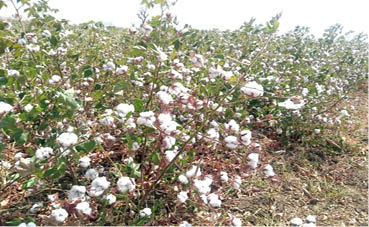Nigeria’s cotton industry is facing a significant decline, with production estimated to drop to just 40,000 tons this year. According to Prof. Samuel Oloruntoba, Secretary of the Cotton Ginners Association of Nigeria, both the quality and quantity of cotton produced have steadily decreased, a trend that threatens the industry’s viability.
Speaking at the Annual Cotton Master Sample and Production meeting at the Institute of Agricultural Research (IAR/ABU) in Zaria, Prof. Oloruntoba highlighted that in recent years, cotton production varied between 60,000 and 120,000 tons. However, due to a series of internal and external factors, including a shrinking workforce and the closure of many textile mills, production continues to plummet.
In his presentation, titled The Role of Government in Resuscitating the Cotton Sub-Sector in the Nigerian Economy: Update, Challenges, and Prospects, Prof. Oloruntoba emphasized that the cotton sector once employed millions and was the second-largest employer in Nigeria, with over 170 textile mills and 52 ginneries. Today, fewer than 22 ginneries operate, and they are working at less than 30% capacity.
To address these challenges, Prof. Oloruntoba called for the formation of a high-level committee under the Presidency to develop a five-year strategic roadmap to revive the cotton industry. He believes that a coordinated effort involving all stakeholders is necessary to restore the sector.
Prof. Ado Yusuf, Executive Director of IAR, supported this call by urging the federal government to enhance domestic cotton utilization and promote research. He shared that the institute is modernizing its equipment to improve cotton fiber quality and strengthen partnerships with local industry players and international seed companies like India’s Mahyco. These efforts, he stated, aim to revitalize cotton production and encourage the introduction of new BT cotton hybrids.
Additionally, Prof. David Idoko Adekwe, Programme Leader for Cotton Research at IAR, mentioned that the meeting this year also focused on re-establishing the Cotton Market Board, which could help stabilize cotton pricing and ensure farmers receive fair compensation for their efforts.
This coordinated push from both the private and public sectors could be key to reviving Nigeria’s cotton industry and restoring its economic and employment contributions.
